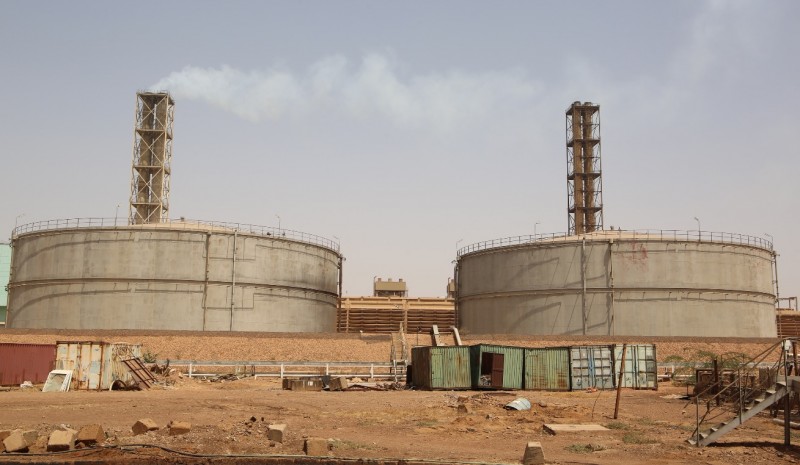RSF accuses Sudan army of ‘criminal act’ as Khartoum Bahri power station burns

Bahri Thermal Power Station (File photo: Sudan Ministry of Energy and Oil)
A huge fire broke out at the Bahri thermal power station in Khartoum North yesterday evening, and thick clouds of smoke reportedly continued to rise in the sky of the station for hours as the fires continued throughout the night without being controlled. The Rapid Support Forces (RSF) has accused the Sudanese Armed Forces (SAF) of bombing the facility, calling it “an effort to destroy vital and strategic facilities and installations”.
Witnesses told Radio Dabanga that the fire broke out towards the southern gate, and spread to all parts of the station*.
The RSF condemned the alleged bombing of the power station as “a criminal act that contravenes all international and humanitarian laws, conventions and customs, and is inconsistent with the laws and ethics of war”.
The SAF has been approached for coment, but had not responded to Radio Dabanga by time of posting.
The Bahri thermal station was closed a week after the outbreak of war, when the RSF took control of Bahri, Khartoum, and large parts of Omdurman.
*The total capacity of the Bahri thermal station is 470 megawatts, while the total power generated is 450 megawatts, including 325 steam and 125 gas. The Bahri station consists of steam and gas machines in three stages, the first consists of two machines with a capacity of 30 megawatts each, the second stage consists of two steam units, each producing 60 megawatts, while the third stage consists of two steam units, each producing 100 megawatts.
The station is located in the Bahri area, east of the industrial zone in Khartoum North. Its location is considered strategic due to its proximity to consumption areas, in addition to its proximity to the railway and land roads, which facilitates the access of operating materials, and its proximity to places of distribution and transportation to it, in addition to its proximity to the water source of the Blue Nile.
Work on the first phase of the station began in 1981 as a grant from the British government (British Overseas Development Authority), where two steam units, each with a capacity of 30 megawatts, were constructed. The station’s production began in 1985 and represented 20 per cent of the total energy in the national grid at that time. Work on the second phase of the station began three years later with the installation of two steam units, funded by the World Bank, the African Development Bank, and the Japanese and French governments. It was opened in July 1994. The third phase implementation began in 2006 and included two units, each with a capacity of 100 megawatts, with a Chinese loan. The Bahri station includes an adjacent water purification station.











 and then
and then